Despite sanctions, Norway buys millions in fish from Russian politician

Despite sanctions, Norway continues to buy millions of dollars worth of fish from a Russian senator, circumventing sanctions
Norwegian entrepreneurs have paid nearly $2 million to companies associated with Russian Senator Igor Zubarev. “Chronicles.Media” explains how, despite sanctions, one can continue trading with Europe.
Finding Nominees
Senator from Karelia Igor Zubarev has business interests in both construction and media, wrote “Chronicles.Media”, but his main source of income is fish. In 2022, he ranked second in the list of the richest fishery industrialists in the Northwest, published by our publication, with only entrepreneur Vitaly Orlov and his holding “Norebo” ahead of him. In the ranking of the wealthiest public officials in the last year of officials’ declaration publications, according to Forbes magazine, Zubarev ranked eighth.
After Russia invaded Ukraine, the United Russia member, like all senators, fell under international sanctions. He then began transferring business to nominees, as “Chronicles.Media” had already reported.

One of Zubarev’s main revenue-generating and profitable fishing assets is LLC “Fishing Company Virma”. Zubarev, as known to “Chronicles.Media”, received two loans from “Virma” in 2023: 100 million on October 24 and 1.15 billion rubles on October 10. Looking at these amounts, one might assume that the loans are either long-term or non-repayable. According to the law, a senator cannot engage in business and live on dividends, so he apparently has to extract money for living in this way.
Another fishing company is JSC “Fishing Company ‘Variant’”. Zubarev has never officially owned it, but the publication “Lenta.ru” reported in 2024 that companies associated with the United Russia member allegedly conducted a raider seizure of “Variant”, making a certain Marat Iskhakov the nominal owner.
Zubarev transferred not only fishery but also fish trade to nominees. Thus, almost immediately after the senator fell under sanctions, the company “Fishmarine” was established in April 2022. The United Russia member is not officially connected to it, but the key figures of the organization suggest otherwise.
The company’s director, Maxim Andreitsev, was working as the deputy director of the construction company LLC “Vest” as recently as 2021.
In turn, “Vest” belongs to the politician’s namesake, Petr Ivanovich Zubarev. In 2019, the newspaper “Novaya Kondopoga” called him a representative of LLC “Fish Trading Network”, whose founder was once the very same Senator Zubarev.

From 2017 to 2021, the general director of “Vest” was Tatyana Kuzmina, who is closely associated with Zubarev’s business. Today, she heads affiliated companies LLC “Barents Group” and LLC “Azimut”.
Kuzmina’s daughter, Daria, started working at the company LLC “Invest Development” at the age of 20. The director of this enterprise is the aforementioned Petr Zubarev’s brother, Pavel. At 24, Kuzmina founded the company LLC “Northern Dawns”. In 2024, this organization bought two historical buildings from Petrozavodsk for 50.7 million rubles, reported the publication “Petrozavodsk Says”. The young millionaire competed with Petr Zubarev’s company “Vest”, which offered only 10 thousand rubles less. Such a “deadly fight” for assets did not prevent the entrepreneurs from remaining friends on “Vkontakte”.
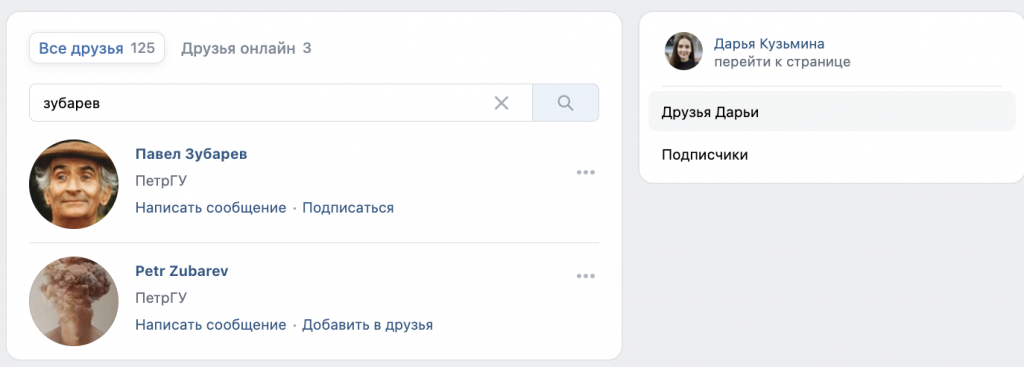
Finally, the connection between “Vest”, “Fish Trading Network”, and Senator Zubarev is reflected in the financial statements of “Vest” for 2019.

Such entanglements surround the figure of “Fishmarine” director Maxim Andreitsev.
Now let’s look at its owner. She is a certain Yulia Gapanovich. She also works as the director of Zubarev’s “Fish Trading Network”. Before Gapanovich, the director of the “Fish Trading Network” was Zubarev’s old nominee, Petrozavodsk deputy Vitaly Markov, whom “Chronicles.Media” had already written about. He is also friends with Daria Kuzmina on “Vkontakte”.

Entrusting Business to Reliable Hands
One set of nominees was not enough for Zubarev, and in December 2023, he transferred many of his enterprises to the management company “Svinyin and Partners” of St. Petersburg developer Vladimir Svinyin from “Okhta Group”. Among them: “Virma”, “Barents Group”, “Azimut”, “Soglasie”, and “Fish Trading Network”. At the same time, the general director of “Virma”, despite the alleged change of owners, remains the same person – Vyacheslav Sturzu.
In their 2023 report, “Virma”, “Azimut”, and “Soglasie” stated that they belong not directly to LLC “Svinyin and Partners”, but to the closed-end mutual investment fund (ZPIF) “Dal”, which is under the management of Vladimir Svinyin’s company. The fund was included in the relevant register of the Central Bank of Russia on October 4, 2023, several months before the senator’s assets were transferred to it.
Wealthy Russians, wrote the newspaper “Vedomosti”, began actively investing in ZPIFs after the Russian invasion of Ukraine began. The fact is that they allow hiding the real owners of the property and thus bypassing sanctions. De jure, the holder of the security – the share – no longer owns the property, rights are transferred to the management company. Shares in such a fund are restricted in circulation, and disseminating data about the fund is prohibited.
The term of the “Dal” fund is until December 31, 2033.
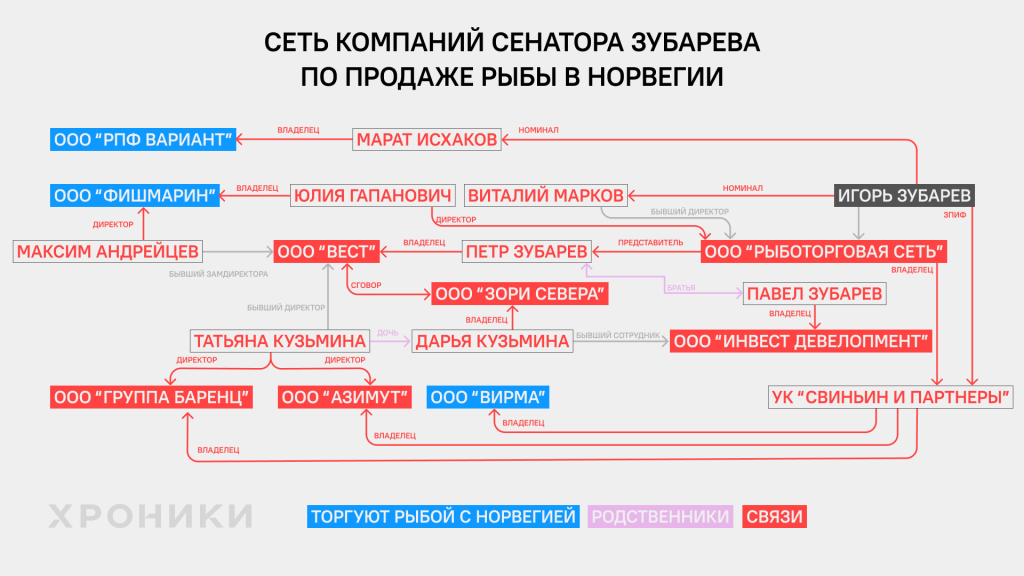
Starting to Trade
Why does Senator Zubarev need this nominee and mutual fund mess? So that his companies continue to sell fish to Europe. Russians are buying less and less of this product, and selling it abroad has always been more profitable.
Immediately after Russia’s invasion of Ukraine, Norway did not prohibit, but limited the number of ports where Russian fishing vessels can enter. These are Tromsø, Botsfjord, and Kirkenes. The Kingdom explained this by saying that Norway and Russia share the world’s largest cod stocks in the Barents Sea, and a complete ban would destroy the natural balance built over decades.
Barents Observer and “Chronicles.Media” have identified at least five vessels associated with Zubarev that docked in Norwegian and Danish ports. They visited the Faroe Islands, Tromsø, and Kirkenes. All of them sail under Russian flags.
The first is “Yantarny” (the senator was born in a village of the same name in the Kaliningrad region), belonging to “Soglasie”. The second is “Karelia”, owned by LLC “Pelagika”. The third is “Belomorsk”, owned by “Virma”. The home port of all these vessels is Murmansk.
Two more vessels are “Kemi” and “Arktika”. The first belongs to “Virma” and is registered in St. Petersburg, the second to LLC “Pelagika”, registered in Arkhangelsk.
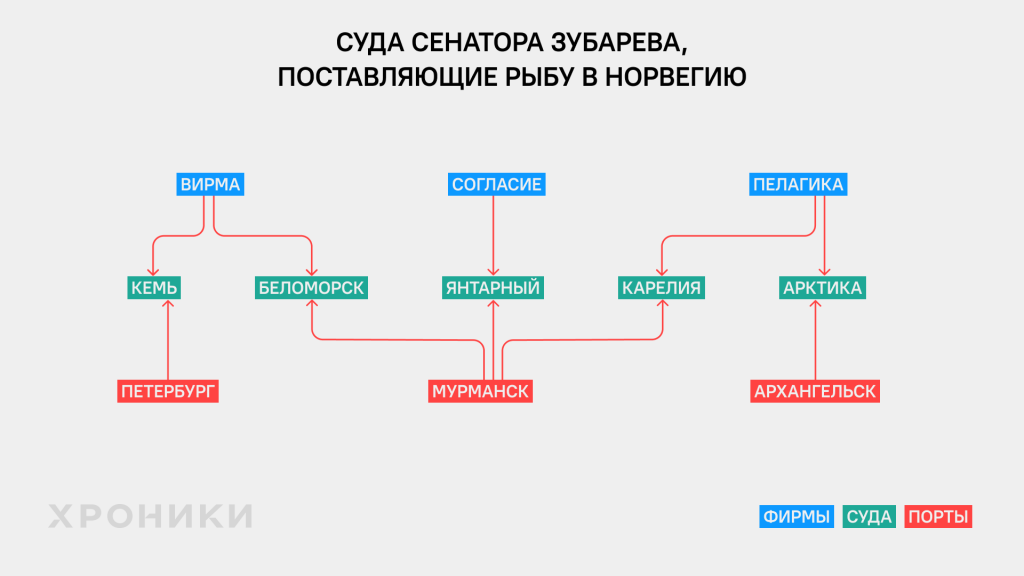
“Kemi” and “Belomorsk” were also seen in the port of the village of Fiskarstrand in southeastern Norway, reported the Norwegian Broadcasting Corporation (NRK) on March 16, 2022. It was noted that Russian suppliers brought about a quarter of the terminal’s total turnover. The vessels began leaving the port only on March 21 when Norway imposed sanctions against Zubarev.
“Belomorsk” was photographed in Kirkenes on March 27, 2024. It brought 40 tons of fish, but the terminal refused to accept it, stating that the product was stored improperly. This was told to a Barents Observer journalist by one of the crew members.
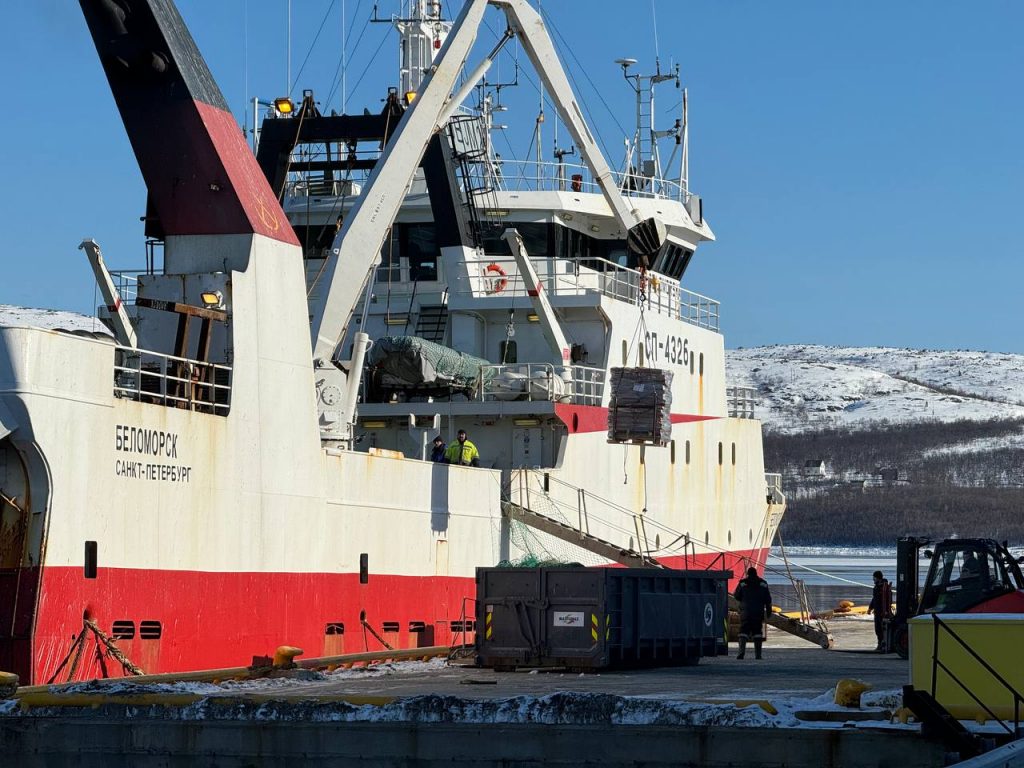
According to him, they deliver the fish to the Norwegian company Kirkenesterminalen. It handles its storage, but where the product goes afterward is unknown.
— Maybe to Russia, maybe to China. We caught fish in the Norwegian zone, and we can sell it here in Norway. And the fish caught in the Russian zone is all taken home, — said a crew member of “Belomorsk”.
This is not the only vessel associated with Zubarev, which, according to the Marinetraffic tracking service, docked here. “Kemi” and “Yantarny” have also been here.
What Do Norwegian Port Representatives Say About This?
Barents Observer and “Chronicles.Media” sent a request to the company Kirkenesterminalen. Managing Director Øyvind Andersen replied:
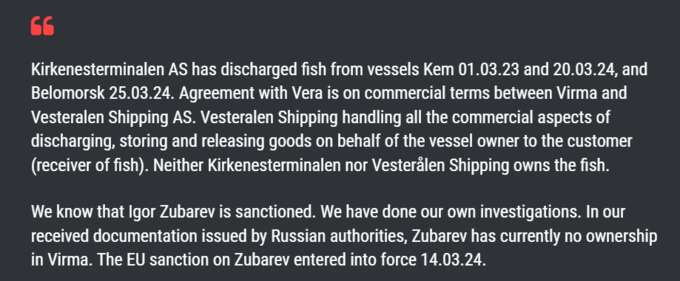
On another pier in Kirkenes, belonging to The Tschudi Group, according to Marinetraffic service data, the ships “Arktika”, “Kemi”, and “Yantarny” docked. The Tschudi Group responded to a request from “Chronicles.Media”.
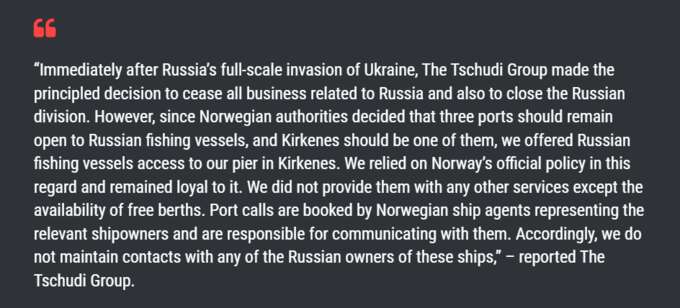
Another vessel associated with Zubarev, “Kemi,” according to Marinetraffic, entered Tromsø on March 1, 2024, and was near the Troms Fryseterminal. Barents Observer and “Chronicles.Media” sent a request to this organization but received no response.
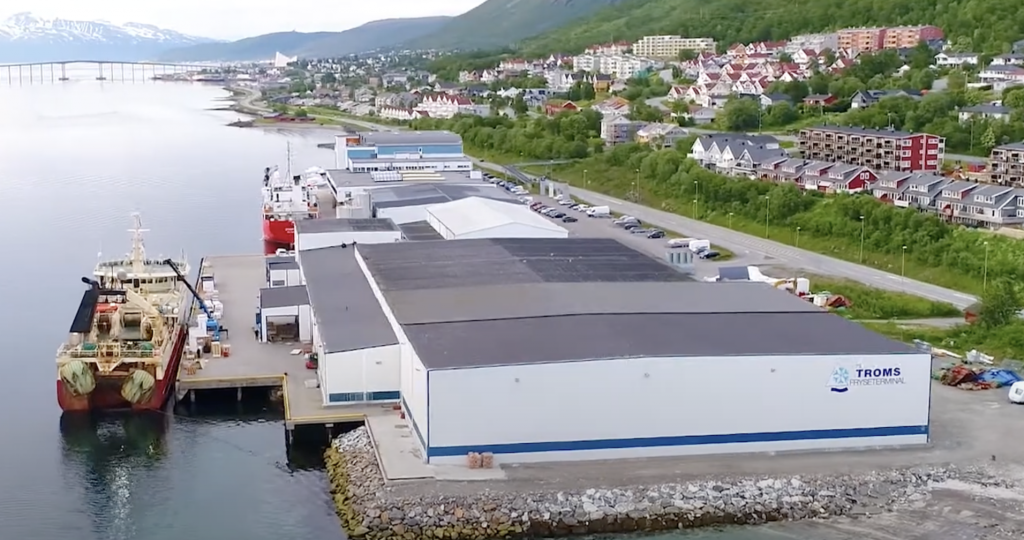
Millions of Dollars Bypassing Sanctions
To see who the Russian ships sold the cargo to, one can use the Trademo service, which provides data on global supply chains. The first such thread leads to Norway’s fish capital, the city of Alesund. There is a company called Aalesund Seafood.
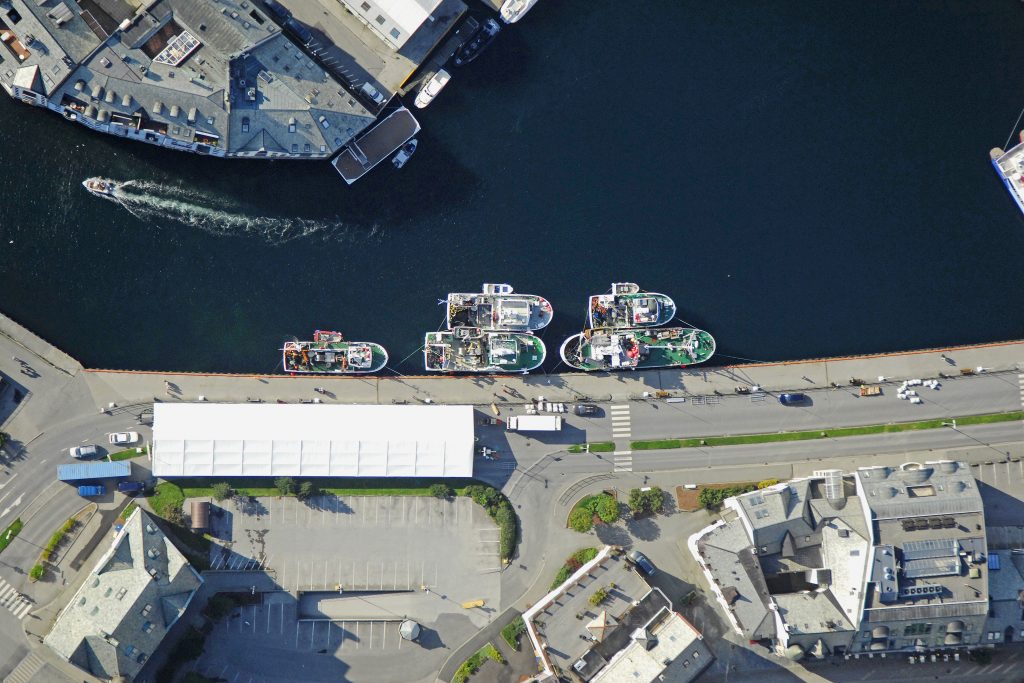
Alesund Fish Port. Source: marinas.com
After Russia invaded Ukraine and Zubarev was sanctioned, Aalesund Seafood bought products from “Variant” for $630,950.57 and from the company “Fishmarine” for $1,224,160.91. A total of over 1.8 million dollars (more than 1.6 million euros or almost 20 million Norwegian kroner).
Aalesund Seafood did not respond to the request from “Chronicles.” It is also noteworthy that, according to “Chronicles,” this money never went to the Russian accounts of the companies mentioned in the text. Where this money is located is unknown.
Barents Observer asked senior adviser of the Norwegian Helsinki Committee Åge Borchgrevink to assess whether the sanctions regime is being violated in this case.
The human rights NGO Norwegian Helsinki Committee documents violations of anti-Russian sanctions, in particular. First and foremost, the organization monitors the sale of goods needed for war to Russia. The “Committee” also works with politicians and entrepreneurs and lobbies for a ban on the supply of sanctioned goods to Russia.
- “It’s hard to comment on this without seeing the original documentation. Also, the degree of ownership or control of the company by a sanctioned person must be assessed by authorities (or courts) for ownership or control to be considered proven. Counterparties working with the relevant companies, of course, should assess the risk of sanctions themselves, based on factors such as their readiness for risk and the strength of evidence indicating that the company is owned or controlled by a sanctioned person.
Is servicing vessels owned by a person subject to sanctions breaking the law?
“If it is indeed established that the companies are owned or controlled by a person subject to asset freezing sanctions, then any transactions with these companies, including transactions, payments, and the provision of services, are prohibited. The ban extends to assets (such as ships) owned by these companies. In other words, servicing vessels owned by companies owned or controlled by a person subject to sanctions is prohibited.”
Is it possible to hide transactions between Russian and Norwegian companies? For example: the ship “Yantarny,” owned by “Soglasie,” entered a Norwegian port, but we do not see any transactions. Is it possible that the payment went through an intermediary company?
“Companies can use many ingenious ways to hide transactions. For example, they may use dummy legal entities or complex corporate structures, pay through intermediaries or third-party organizations (e.g., other enterprises of the corporate group), pay in cash, or split a large payment into several small ones, so that each of them is below a certain threshold and does not arouse suspicion. However, without seeing any supporting documentation, it’s hard to speculate on whether such methods were used here.”
It should be noted that Article 2 of the Council of the European Union Regulation No. 269/2014 “On restrictive measures in connection with actions undermining or threatening the territorial integrity, sovereignty, and independence of Ukraine” states:
“1. All funds and economic resources owned, held, controlled, or associated with any individuals or legal entities, organizations, or bodies, or related to them… must be frozen. 2. No funds or economic resources may be made available, directly or indirectly, to or for the benefit of, or to any individuals or legal entities, organizations, or bodies associated with them…”.
Norway joined these sanctions. That is, in the kingdom, you cannot buy fish from Zubarev’s companies and let his ships into ports. However, in Norway, they either do not know or do not want to know about this.
Ilia Krasnov, Tarjei Leer-Salvesen, Georgi Chentemirov, Sergei Kagermazov
Source: chronicles.media
Read more similar news:
Comments:
comments powered by Disqus

































